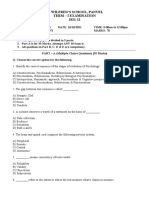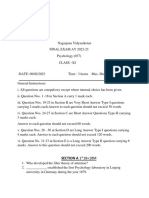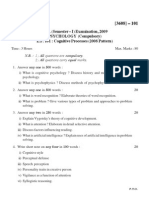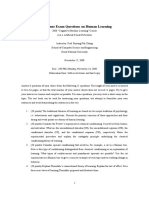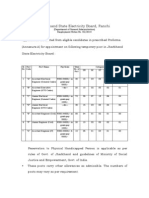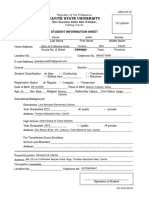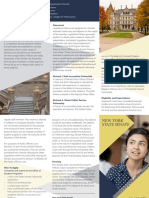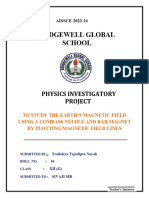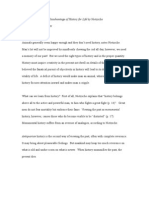0% found this document useful (0 votes)
31 views1 pageCognitive QP
The document is an examination paper for a Cognitive Psychology course, consisting of three sections with a total of 70 marks. Section A requires students to answer five out of six questions related to key concepts in cognitive psychology, while Section B involves two questions on sensory integration theory, language structure, and classical conditioning. Section C is a compulsory question discussing attention and memory, requiring explanations of Treisman's model and mnemonics.
Uploaded by
harshitanotani2207Copyright
© © All Rights Reserved
We take content rights seriously. If you suspect this is your content, claim it here.
Available Formats
Download as PDF, TXT or read online on Scribd
0% found this document useful (0 votes)
31 views1 pageCognitive QP
The document is an examination paper for a Cognitive Psychology course, consisting of three sections with a total of 70 marks. Section A requires students to answer five out of six questions related to key concepts in cognitive psychology, while Section B involves two questions on sensory integration theory, language structure, and classical conditioning. Section C is a compulsory question discussing attention and memory, requiring explanations of Treisman's model and mnemonics.
Uploaded by
harshitanotani2207Copyright
© © All Rights Reserved
We take content rights seriously. If you suspect this is your content, claim it here.
Available Formats
Download as PDF, TXT or read online on Scribd
/ 1














